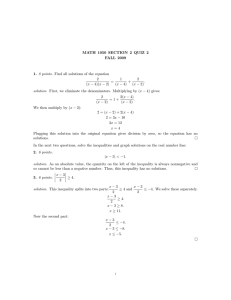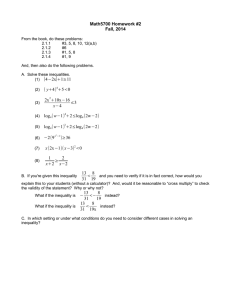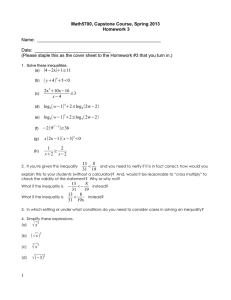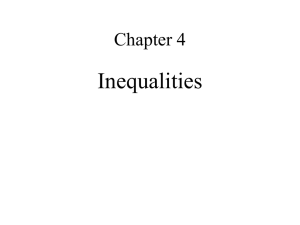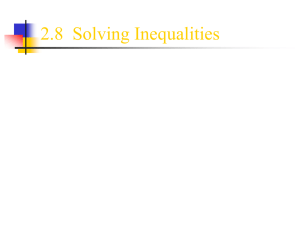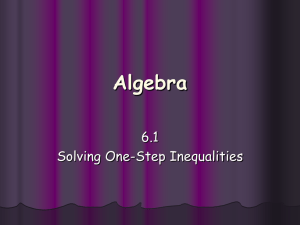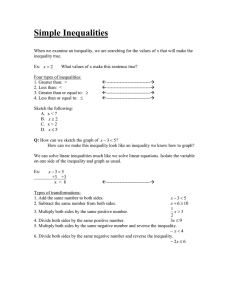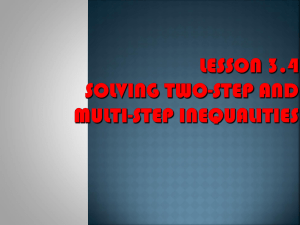Solving Inequalities: A Math Lesson
advertisement
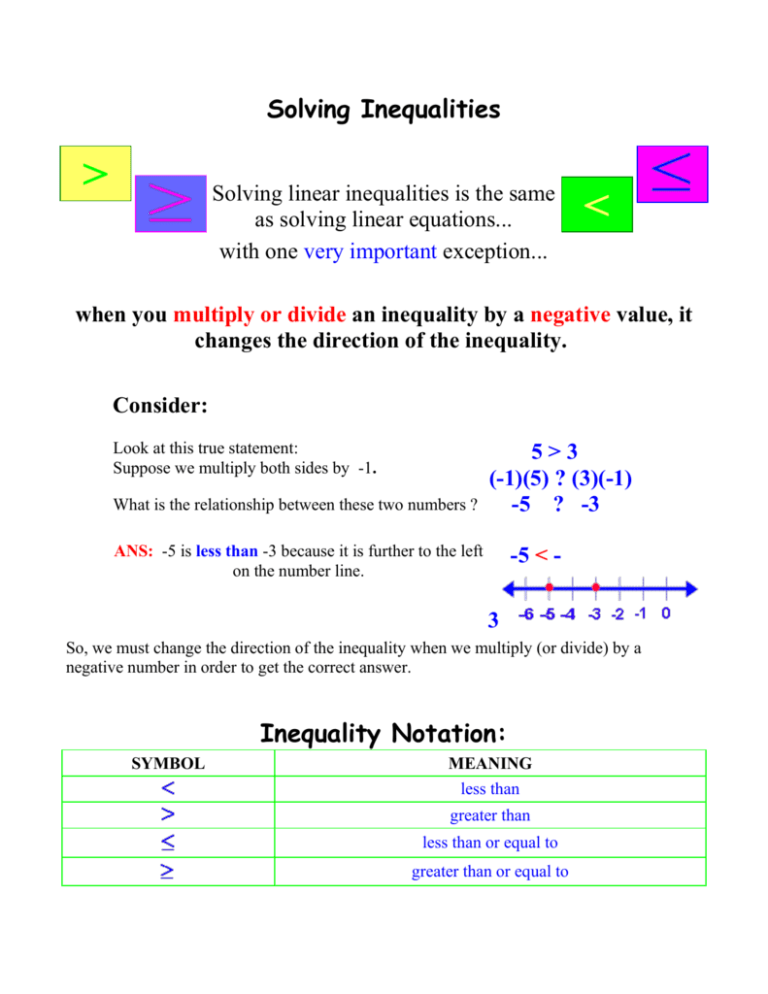
Solving Inequalities > Solving linear inequalities is the same as solving linear equations... with one very important exception... < when you multiply or divide an inequality by a negative value, it changes the direction of the inequality. Consider: Look at this true statement: Suppose we multiply both sides by -1. What is the relationship between these two numbers ? 5>3 (-1)(5) ? (3)(-1) -5 ? -3 ANS: -5 is less than -3 because it is further to the left on the number line. -5 < 3 So, we must change the direction of the inequality when we multiply (or divide) by a negative number in order to get the correct answer. Inequality Notation: SYMBOL MEANING less than greater than less than or equal to greater than or equal to Solve and graph the solution set of: 2x - 6 < 2 Add 6 to both sides. Divide both sides by 2. Open circle at 4 (since x can not equal 4) and an arrow to the left (because we want values less than 4). 2x - 6 < 2 2x < 8 x<4 Solve and graph the solution set of: 5 - 4x 13 Subtract 5 from both sides. Subtract x from both sides. Divide both sides by -4, and don't forget to change the direction of the inequality ! (We divided by a negative.) Closed circle at -2 (since x can equal -2) and an arrow to the right (because we want values larger than -2). 5 - 4x 13 -4x 8 x -2

